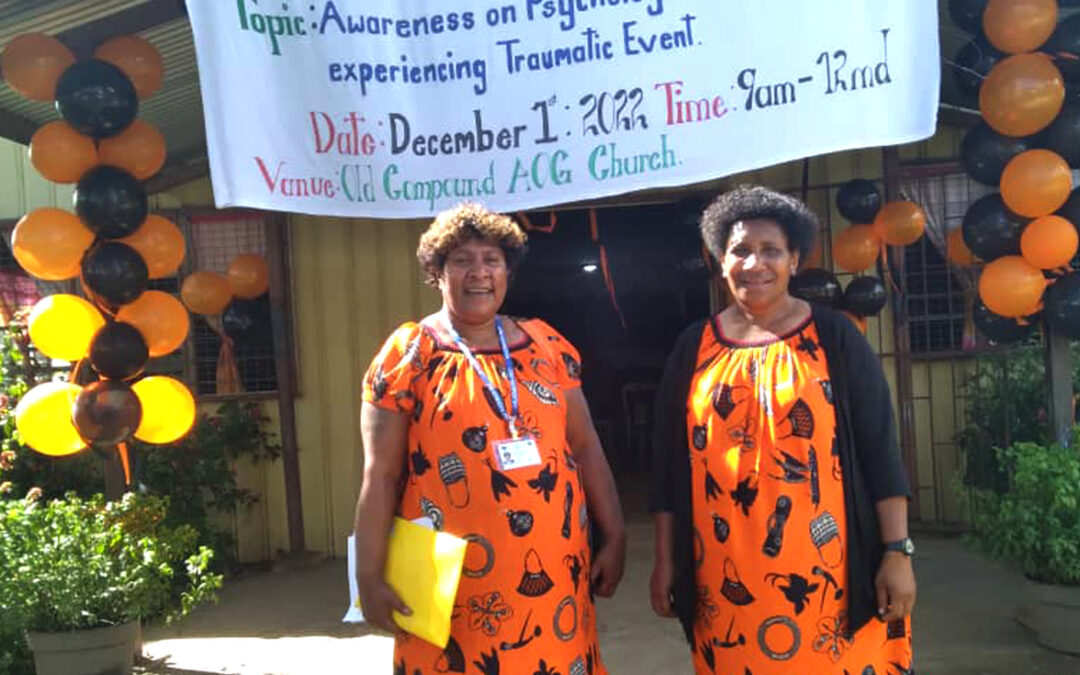Confronted by the abuse of women and children she witnessed while working in a Family Support Center, Mary Balupa took up studies in counselling to equip herself to better help her community. “I saw the tears in the eyes of children who were neglected because of polygamy and violent relationships. I understand them well because I am a survivor too, with my children,” says Mary, an Australia Awards alumna.
Mary was born a few months before Papua New Guinea gained independence, while her parents were working at the Mendi General Hospital, where she is now working and caring for victims of sexual and gender-based violence, as well as providing medical treatment and psychological support.
Now 47 years old and a mother of six children, she served in the hospital as a nurse for more than 20 years with a certificate and bachelor’s in nursing and went on to obtain a Postgraduate Certificate in Counselling through a Short Course Award with Australia Awards PNG. “I have learned a lot, but what I am using daily with my patients is the micro counselling skills,” she says.
She claims: “I am a mental health nurse, but I was not taught in detail about counselling skills. The skills I learned from this course have improved my ways of talking and my manner of approach in my daily life. I have used that to help provide [better] quality psychological care to my patients than before.”
“I would say that the short course was the best because quality skills were taught by a great teaching team that has changed me personally too,” she says.
Since graduating, Mary has taught 28 other nurses in Mendi about the counselling skills she learned so they can reach more people in the remote places she can’t go. “I felt for mothers and children in the rural communities who could not come to a bigger hospital to access service but are silently suffering in the rural communities. I was privileged because I was educated, though I was a survivor of gender-based violence. But I felt for the rural majority that are not heard and are still in the community. Some may have died without being helped. I would like to reach out to them in my career pathway,” she says.
She volunteered to coordinate Family Support Center services in the province where she conducts training and supervisory visits. “I now have 16 sites in the province,” says Mary.
Even though she had challenges with lack of resources and manpower, Mary is passionate about doing her job. “I do not give up easily when I see a negative situation. I find other ways to turn those into positive and move on with life,” she says.
“I have a powerful management team in the hospital who support 100 per cent and that has made me move forward in my work. I seek help from other partners such as WHO, IRC, UNFPA and Santos.”
“I would like to thank Australia Awards PNG for selecting me to do the short course so I can make a difference in my family, workplace and community,” says Mary.
